Premium Only Content
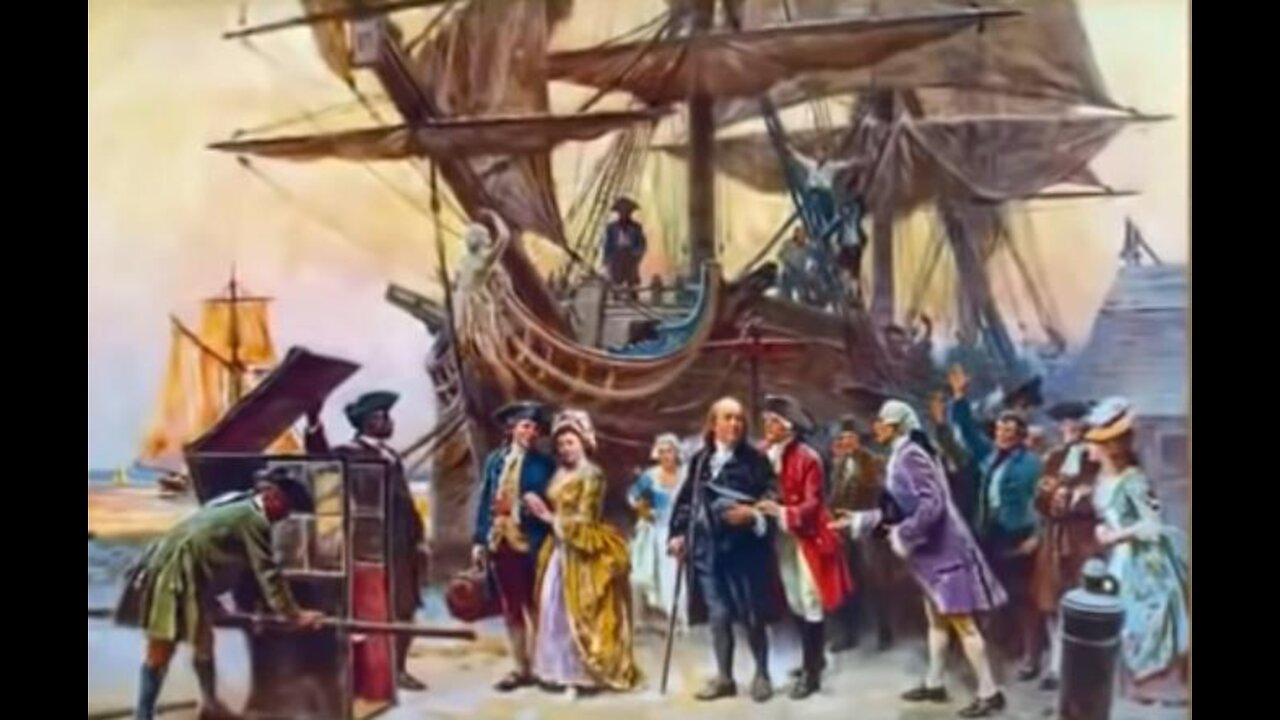
Paul Harvey – Fate of the 56 Signers of the Declaration of Independence
But for any eve of the Fourth of July, I Paul Harvey do hereby bequeath unto you something to remember.
You may not be able to quote one line from the Declaration of Independence at this moment. Henceforth, you will always be able to quote at least one line. It’s in the last paragraph where you will recall, when I remind you, it says, “We mutually pledge to each other our lives, our fortunes and our sacred honor.”
In the Pennsylvania state house which is now called Independence Hall in Philadelphia, the best men from each of the colonies sat down together. This was a very fortunate hour in our nation’s history. One of those rare occasions in the lives of men when we had greatness to spare. These were men of means, well educated. Twenty-Four were lawyers and jurists. Nine were farmers, owners of large plantations.
On June 11, a committee sat down to draw up a Declaration of Independence. We were going to tell the British fatherland, “No more rule by redcoats.” Below the din of ruthless foreign rule, the stream of freedom was running shallow and muddy and we were going to light a fuse to dynamite that dam. This pact, as Burke later put it was “a partnership between the living and the dead, and the yet unborn.” There was no bigotry, there was no demagoguery in this group. All had shared hardships.
Jefferson finished a draft of the document in 17 days. Congress adopted it in July. And so much is familiar history. But now King George III had denounced all rebels in America as traitors. Punishment for treason was hanging. The names now so familiar to you from the several signatures on that Declaration of Independence–the names were kept secret for six months, for each knew the full meaning of that magnificent last paragraph in which his signature pledged his “LIFE, his fortune, and his sacred honor.”
56 men placed their names beneath that pledge. Fifty-six knew when they signed, that they were risking everything. They knew if they won this fight the best they could expect would be years of hardship in a struggling nation, and if they lost, they would face a hangman’s rope.
But they signed the pledge.
AND HERE IS THE DOCUMENTED FATE OF THAT GALLANT 56:
Carter BRAXTON of Virginia; wealthy planter, trader, saw his ships swept from the seas. To pay his debts, he lost his home and all of his properties and died in rags.
Thomas LYNCH Jr. who signed that pledge was a third generation rice grower, aristocrat; large plantation owner. After he signed his health failed, his wife and he set out for France to regain his failing health. Their ship never got to France, was never heard from again.
Thomas MCKEAN of Delaware was so harassed by the enemy that he was forced to move his family five times in five months. He served in Congress without pay; his family in poverty and in hiding.
Vandals looted the property of ELLERY, CLYMER, HALL, GWINNET, WALTON, HEYWARD, RUTLEDGE, and MIDDLETON.
Thomas NELSON Jr. of Virginia raised two-million dollars on his own signature to provision our allies; the French fleet. After the war, he personally paid back the loans, wiped out his entire estate and he was never reimbursed by his government. In the final battle for Yorktown, he, Nelson urged General Washington to fire on his–Nelson’s own home which was occupied by Cornwallis. Thomas Nelson Jr. had pledged his life, his fortune, his sacred honor.
The Hessians seized the home of Francis HOPKINSON of New Jersey.
Francis LEWIS had his home and everything destroyed, his wife imprisoned. She died within a few months.
Richard STOCKTON who signed that declaration was captured, mistreated, his health broken to the extent that he died at fifty-one. His estate was pillaged.
Thomas HEYWARD Jr. was captured when Charleston fell.
John HART was driven from his wife’s bedside while she was dying. Their thirteen children fled in all directions for their lives. His fields and gristmill were laid waste. For more than a year he lived in forests and caves and returned home after the war to find his wife dead, his children gone, his properties lost. He died a few weeks later of exhaustion and of a broken heart.
Lewis MORRIS saw his land destroyed, his family scattered.
Phillip LIVINGSTON died within a few months from the hardships of the war.
John HANCOCK, history remembers best due to a quirk of fate rather than anything he’d stood for. That great sweeping signature attesting to his vanity towers over the others. One of the wealthiest men in New England yet he stood outside Boston on a terrible night of the war and he said, “Burn Boston, burn. Though it makes John Hancock a beggar– if the public good requires it.” So, he too lived up to the pledge.
Of the 56, few were long to survive. Five were captured by the British and tortured before they died.
12 had their homes from Rhode Island to Charleston sacked, looted, occupied by the enemy or burned.
2 lost their sons in the army. One had two sons captured.
9 of the Fifty-Six died in the war from it’s hardships or it’s more merciful bullets.
I don’t know what impression you had had of the men who met that summer in Philadelphia.
But I think it’s important that we remember this about them. They were not poor men. They were not wild-eyed pirates. These were men of means. They were rich men most of them and had enjoyed much ease and luxury in their personal living. Not hungry men. Certainly not terrorists, not irresponsible malcontents, not fanatical incendiaries. These men were prosperous men. Wealthy landowners. They were substantially secure in their prosperity. They had everything to lose.
But they considered LIBERTY–and this is as much as I shall say of it–they learned that LIBERTY is so much more important than security, that they pledged “their lives, their fortunes, and their sacred honor.”
They fulfilled their pledge. They paid the price– and FREEDOM was born.
~Paul Harvey
"We hold these truths to be self-evident, that all men are created equal, that they are endowed by their Creator with certain unalienable Rights, that among these are Life, Liberty and the pursuit of Happiness."
-
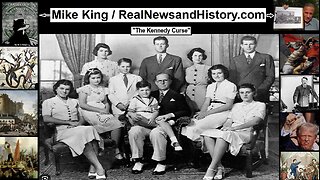 9:00
9:00
Truths Unlimited
9 hours agoKilling the Kennedys: The True Cause of "The Kennedy Curse" ~ By MIKE KING /RealNewsandHistory. com
1.2K -
 LIVE
LIVE
SpartakusLIVE
9 hours agoThe BADDEST Duo in WZ Exhibits PEAK Physique || Duos w/ Sophiesnazz to start, quads later
6,662 watching -
 2:49:37
2:49:37
RattlesnakeTV
20 hours ago $0.15 earnedLIVE DEBATE! Lord Jake vs Crazy Feminist
21.5K11 -
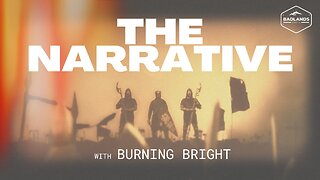 4:00:42
4:00:42
Badlands Media
12 hours agoThe Narrative Ep. 35: Codex of Truth
87.9K42 -
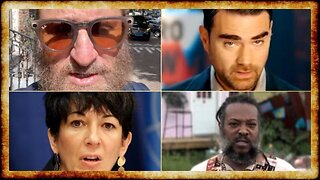 3:55:56
3:55:56
Due Dissidence
15 hours agoSchmuley TRASHES Shapiro, Maxwell Sings For Pardon, Uhuru Doc Preview - Live From St. Louis!
44.3K44 -
 LIVE
LIVE
Lofi Girl
2 years agolofi hip hop radio 📚 - beats to relax/study to
457 watching -
 2:23:21
2:23:21
PandaSub2000
5 days agoMadison VR (Part 4) | PSVR 2000 (Original Live Version)
23.7K2 -
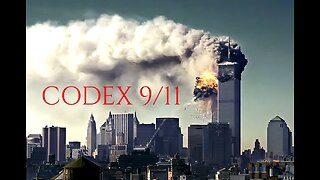 2:34:32
2:34:32
Badlands Media
5 days agoCODEX 9/11
303K261 -
 1:53:43
1:53:43
Nerdrotic
9 hours ago $0.32 earnedMysteries of 3I/ATLAS | Forbidden Frontier #113
58.4K5 -
 2:04:21
2:04:21
vivafrei
1 day agoEp. 278: D.C. Peace Wave! Big Tish & Nipple Judge SPANKED! "Maryland Man" Trafficker FREE & MORE?
115K136